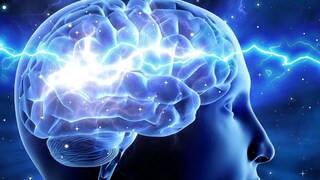China’s AI flexes at WAIC with beer-serving bots and digital avatars

The debates regarding artificial intelligence (AI) keep building up with every passing day. With AI slowly entering everyone’s lives, it is also replacing some jobs, especially the ones involving routine and repetitive tasks. But recently,y a bold claim by former OpenAI co-founder Ilya Sutskever sparked a new conversation. He said if the brain is a “biological computer" then why can’t we have a “digital brain"? His views didn’t sit well with Stuart Hameroff, an astrobiologist and the Director of the Centre for Consciousness Studies.
In a post on X (formerly Twitter), Stuart shared a clip of a recent keynote speech of Sutskever at the University of Toronto.
In the clip, Sutskever, who also previously worked at Google Brain and co-invented the neural network AlexNet, said, “Slowly but surely we will see the AI getting better and the day will come when AI will do all the things that we can do. Not just some of them but all of them. Anything which I can learn, anything which any of you can learn, the AI could do as well."
He then explained his reasoning behind this bold prediction. “How do we know this by the way? How can I be so sure? The reason is that all of us have a brain. And the brain is a biological computer. That’s why we have a brain. So why can’t a digital computer, a digital brain do the same things?" he questioned.
Sutskever concluded by saying, “This is the one-sentence summary of why AI will be able to do all those things."
But Stuart completely disagreed. “Ilya Sutskever is wrong on this. The brain is not a digital computer and not a computer at all, more like a quantum orchestra. Biology is based on organic carbon, which supports quantum processes and self-similar dynamics in hertz, kilohertz, megahertz, gigahertz, and terahertz in microtubules, composed of tubulin, the brain’s most abundant protein," he wrote.
He also pointed out a major gap between machines and human beings, saying, “And while computers can learn, they’re not conscious, cannot feel, and have no intrinsic motivation. That’s why no AGI."
Hameroff also shared a link to his published paper titled Consciousness, Cognition and the Neuronal Cytoskeleton – A New Paradigm Needed in Neuroscience. In it, he argues that treating the brain as a “complex computer" made of simple neurons falls short of explaining consciousness and key aspects of human thinking.
During his speech, Sutskever also spoke about how advanced AI is today. He said that even though it is not fully developed yet, it already gives us a glimpse of what’s possible. He called it “evocative" and said that real superintelligence is not too far away. “Three, five, maybe ten years" is the time frame he gave for when we might see that big breakthrough.